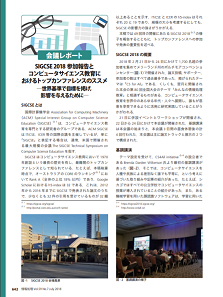At ICSE2018 NIER track, Yasuo presented our paper titled Retrospective based on Data-Driven Persona Significance in B-to-B Software Development, which is the result of joint research with e-Seikatsu.
Yasuhiro Watanabe, Hironori Washizaki, Kiyoshi Honda, Yoshiaki Fukazawa, Masahiro Taga, Akira Matsuzaki, Takayoshi Suzuki, Takayoshi Suzuki, “Retrospective based on Data-Driven Persona Significance in B-to-B Software Development,” 40th International Conference on Software Engineering (ICSE 2018)(CORE Rank A*), New Ideas and Emerging Results (NIER) Track, May 27 – 3 June 2018, Gothenburg, Sweden




